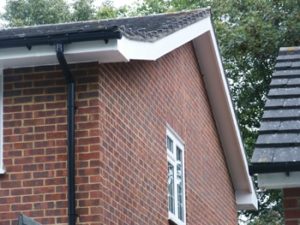
Fascia And Soffit Company
Add a review FollowOverview
-
Sectors Health Care
-
Posted Jobs 0
-
Viewed 20
Company Description
15 Expert Soffit Installation Benefits That Everyone Should Be Able To

Expert Soffit Installation: A Comprehensive Guide
Soffit installation is a vital element of both new building and construction and home remodelling projects. The soffit, which is the underside of a roofing system overhang, serves both an aesthetic and functional function in a building’s style. Appropriately installing soffits can improve curb appeal, secure the structural elements of a roof, and improve ventilation in attics. This post intends to offer an extensive introduction of soffit installation, consisting of types, products, professional strategies, and often asked questions.
Understanding Soffits
What is a Soffit?
A soffit is the horizontal surface area that can be found beneath the eaves of a home. Its main function is to use a finished appearance and cover exposed rafters or beams. Soffits can also play an important role in ventilation by permitting air to distribute in between the roofing system and the attic.
Kinds of Soffits
There are several types of soffit materials readily available on the marketplace, each with its own set of benefits and downsides.
-
Vinyl Soffits: Lightweight and low-maintenance, vinyl is resistant to moisture and provides outstanding insulation.
-
Aluminum Soffits: Durable and rust-resistant, aluminum soffits are available in various colors and do not require painting.
-
Wood Soffits: Offering a standard aesthetic, wood soffits can be painted or stained. Nevertheless, they require regular maintenance to prevent rot and insect damage.
-
Fiber Cement Soffits: This material is extremely resilient, providing resistance to wetness and pests while resembling wood in look.
Soffit Installation: A Step-by-Step Guide
The list below steps lay out an expert technique to soffit installation:
1. Gather Necessary Tools and Materials
Before starting installation, collect the following tools:
- Measuring tape
- Circular saw or miter saw
- Drill and screws
- Level
- Safety safety glasses
- Respirator (for dust protection)
- Ladder
2. Procedure the Area
Accurate measurements are important for a snug fit. Utilize a determining tape to assess the measurements of the location where the soffit will be set up. It is crucial to measure both the length fascia And soffit services width, thinking about the overhang’s depth.
3. Pick the Right Material
Select your soffit material based upon visual choice, spending plan, and wanted longevity. Whether going with vinyl, aluminum, wood, or fiber cement, make sure that it adheres to local building regulations.
4. Prepare the Working Area
Begin by eliminating any old soffit or particles. Ensure the area is clear and safe before proceeding with installation.
5. Cut the Soffit Panels
Utilizing a circular or miter saw, carefully cut the soffit panels according to the measurements taken earlier. Constantly wear security goggles while cutting.
6. Set Up the Soffit Panels
- Begin at one end of the eave, connecting the soffit panels with screws.
- Ensure they are level and lined up properly.
- Utilize a drill to secure the panels firmly, enabling minor growths and contractions.
7. Complete the Installation
Once all panels are installed, examine the joints and edges for any gaps. These gaps can cause moisture problems and can lower the efficiency of ventilation systems. Fill any obvious gaps with suitable sealants.
Table: Comparison of Soffit Materials
| Material | Resilience | Maintenance | Cost | Aesthetic Appeal |
|---|---|---|---|---|
| Vinyl | High | Low | Moderate | Variety of colors |
| Aluminum | Extremely High | Really Low | Higher | Different surfaces |
| Wood | Moderate | High | Low to Moderate | Conventional appearance |
| Fiber Cement | Very High | Moderate | Moderate to High | Resembles wood |
Frequently Asked Questions about Soffit Installation
Q: How frequently must I check or replace my soffits?A: It is suggested to examine soffits every year for damage, wetness, or pest issues. Change them if they show indications of wear or damage. Q: Can I set up soffits myself?A: With the right tools, products, and following basic guidelines, homeowners can set up soffits themselves. Nevertheless, employing a professional is advisable for complicated structures. Q: Do soffits require ventilation?A: Yes, aerated soffits are vital for permitting air to
circulate and avoiding moisture buildup in attic spaces. Q: What are the benefits of soffit installation?A: Benefits include enhanced aesthetics, defense versus the aspects, increased energy effectiveness, and enhanced moisture control. Q: How can I paint wood soffits?A: To paint wood soffits, it’s best to use a premium exterior paint after sanding the surface, using a primer, and then 2 coats of paint
. Expert soffit installation is a vital procedure that integrates workmanship, knowledge of materials, and an understanding of building codes. Whether carrying out a DIY project or working with specialists, knowing the
best materials and procedures can make sure that the soffits of a building not only improve its look but also contribute to the total health and functionality of the home. By following the detailed steps, house owners can achieve an effective and visually pleasing result that offers years of utility and visual pleasure.



